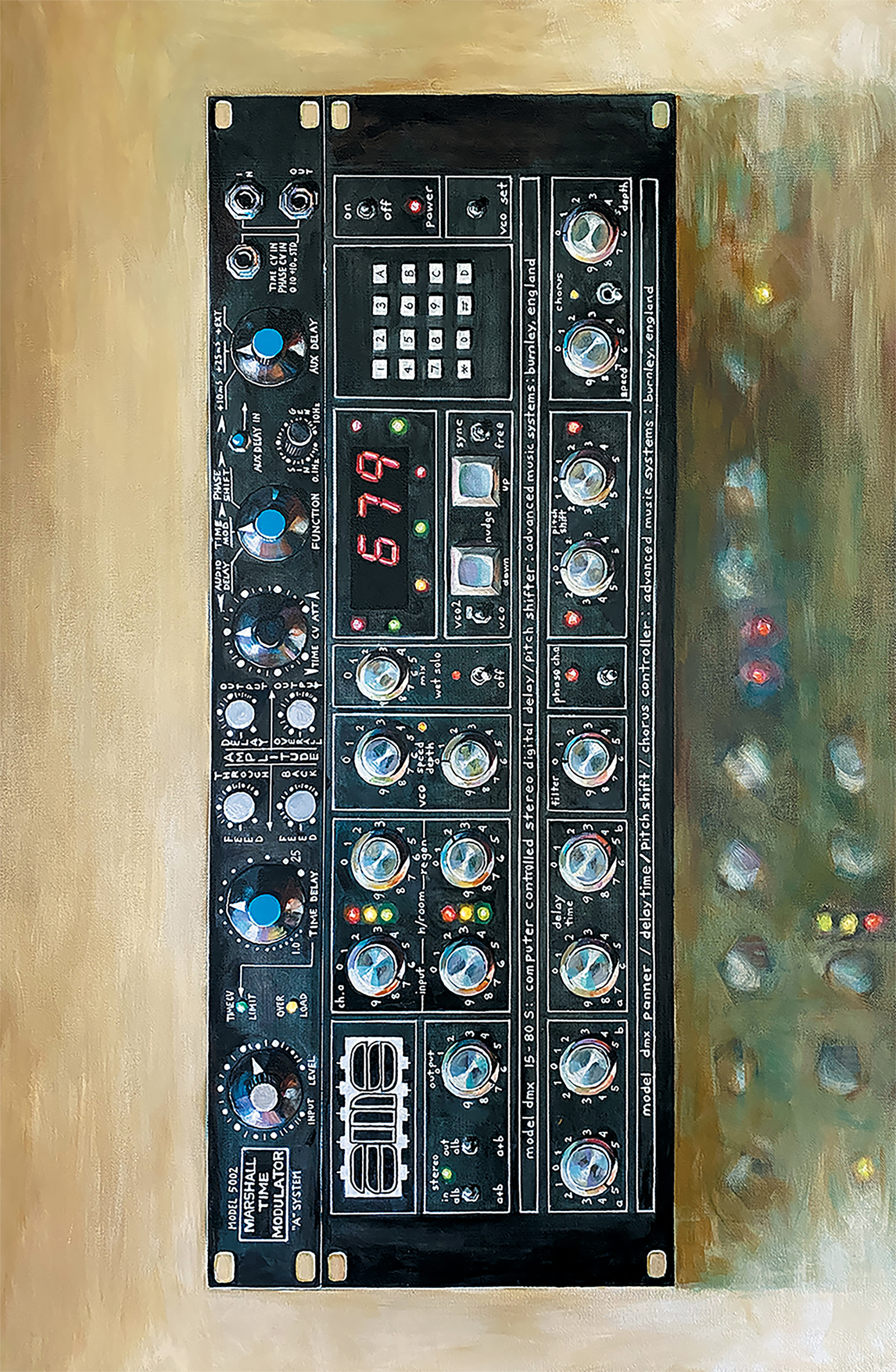It’s a good time to be an enthusiast of the classic Fairchild limiters of the past. Not all that long ago, there were no mass-market reproductions of the Fairchild 660 or 670, and only a smattering of less-than-convincing plug-ins. Nowadays, we have an abundance of hardware and software options to approximate this legendary audio tool. In the past few years, several Fairchild emulations, including the Undertone Audio UnFairchild [Tape Op #125], the Chandler RS660 [#155], and the new Heritage Audio Herchild 670, have all been introduced to the market. Tubes and transformers abound.
The Herchild 670 is a well-built and aesthetically convincing reproduction. The detented pots and knobs have a satisfying heft to them, and are laid out exactly how one would expect: controls for left and right Input Gain, Threshold, as well as the classic 6-position Time Constant control. Heritage Audio has also added several modern updates, including moving the DC Threshold (essentially a ratio and knee adjustment) from the rear to the front panel, plus adding a 4-position left and right high pass sidechain filter.
The Herchild 670 does exactly what you'd want it to. It can be a wonderful smoothing and thickening agent, or it can push and drive. In independent mode its two fantastic mono compressors are unsurprisingly perfect on vocals and bass. Using gentle settings on vocals, it can act like a smart hand on the fader doing subtle vocal rides – that little bit of dynamic control that effortlessly makes a vocal sit right in the track. In linked stereo mode, it excels with bombastic drum rooms or adding some extra heft to overheads. On a high strung acoustic with a hard knee setting, it did an amazing job of highlighting the decay and subtly exaggerating the attack, creating a shimmering bed with a powerful impact. One of my favorite uses was on a stack of snare drum overdubs. Drummer Jason Burger positioned seven different snares around a Schoeps KFM 6 and did a series of interlocking rolls. The Herchild 670 perfectly accentuated the nuance of the attack while enhancing the localization of each snare’s unique decay in each spot in the room.
As a mix bus compressor, I found it a little tricky to get the Herchild 670 into that Goldilocks zone of mix bus compression that is felt more than heard; the kind that adds just a touch of glue and weight without altering the dynamic envelope of the program material too much. It felt like the meters were not quite sensitive enough; I got the sense that by the time the meters were showing any gain reduction, it was already a little more potent than I wanted.
With any modern reproduction, there is a need to balance the original features with contemporary workflows and options. However, there are two features that I wish Heritage Audio added to the classic design: input and output metering and a bypass. The meters on the Herchild 670 only show gain reduction or “BAL” (for balancing the unit when tubes are replaced). Being able to monitor input and output levels would be an incredibly useful tool, and would have made it easier to find the stereo mix sweet spot I was looking for. Additionally, (and this is a personal pet peeve) I think all modern gear should have a bypass option.
In my time with the Herchild 670, I personally preferred it as a pair of fantastic mono compressors rather than a single stereo unit. I mostly kept one channel strapped to my vocal chain and used the other for whatever I fancied.
While acknowledging the amount of work that goes into developing a product like this, and the cost of parts, labor, and supply chain issues, I think a lower price for the Herchild 670 would have positioned it more appealingly amongst the current competition (Heritage Audio does make a more affordable mono version, the 660, priced at $5499, -Ed.). $10,000 is a lot of money to spend on a compressor, and while the Herchild 670 does look, behave, and sound like we’d expect a 670 emulation to, other units have adapted and upgraded the classic in ways that fit into a modern studio without sacrificing the sonic characteristics we all know and love. Potential buyers will need to carefully consider if the Herchild 670 is the right Fairchild reproduction for them.




_disp_horizontal_bw.jpg)